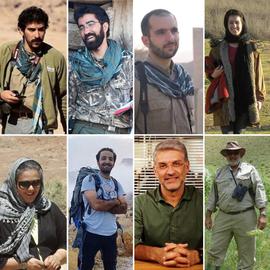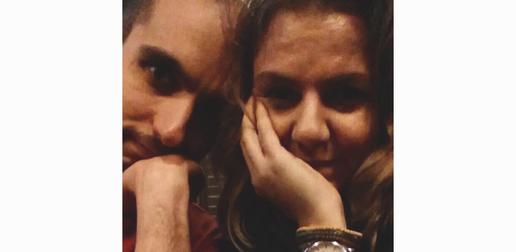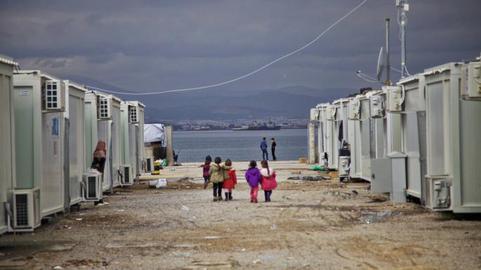It has been more than 400 days since a group of environmental activists were arrested in Tehran — and yet one of the sisters of the detained says that they have not even been allowed to talk to their court-appointed lawyers.
On January 24, 2018, authorities arrested nine environmental activists and charged them with espionage. More than a year on, eight of them remain in prison. One of them is dead.
Kavous Seyed-Emami, a trustee of the Persian Wildlife Heritage Foundation (PWHF), was among those arrested n 2018. On February 9, judicial authorities informed Seyed Emami’s family that he had committed suicide while in prison. The claim met with widespread incredulity, including from his son Ramin Seyed-Emami, who called for an independent investigation.
The other detained environmentalists remained behind bars, many of them suffering from poor health. Morad Tahbaz, who has cancer, is in a critical condition because he has not received medication and treatment for more than a year. Taher Ghadirian’s mother reports that her son is suffering from irritable bowel syndrome.
Maryam Mombini, the wife of Kavous Seyed-Emami, has been banned from traveling abroad; no reason was given for the ban.
I talked to Katayoun Rajabi, the sister of Sam Rajabi, one of those arrested, about where the case stands and what the families are doing to secure the release of their loved ones. She told us that the families do not believe that justice will be done. “But we have to remain hopeful,” she said. “Any good news makes us happy although they have shown that they do not care about justice. We really have no idea what they want.”
Yesterday [March 13], the brother of arrested environmentalist Amir Hossein Khaleghi reported that after studying the case and the indictment, their lawyers have concluded that all eight are innocent and must be released. Considering that these lawyers are court-appointed and are trusted by the judiciary, do you think this is a good sign?
There is nothing in the case to indicate guilt because they have done nothing. Only two of the eight made confessions under coercion. One of them is Niloofar Bayani, who confessed in prison in the presence of the examining magistrate. But she retracted her confession in the court in front of the judge and denied all charges against her. As we know, forced confessions are not legally valid and since Bayani declared in court that she had been forced to confess, then there is nothing in the case to support charges against these detainees.
But the fate of the detainees is still not known, and the lives of some of them are in danger. For instance, it was reported that Mr. Tahbaz, who is suffering from cancer, is no longer getting his medication and his health is deteriorating. And today the mother of Taher Ghadirian said that she is worried about the health of her son.
Tahbaz has been suffering from cancer for some time and judicial authorities and security officials are all aware of this. A while back, when the families succeeded in meeting a Justice Ministry official, the official promised the he would both facilitate meetings between the families and the detainees and arrange for Tahbaz to get his medication. Unfortunately, contrary to this promise, the meeting situation has not changed. Of course, I do not know whether Mr. Tahbaz has received his medication or not. In any case, Mr. Tahbaz is in critical condition and needs to be transferred to a hospital. As of now, security officials have prevented it.
So, as far as you know, the judiciary and the agency that arrested the environmentalists were aware from the beginning that Mr. Tahbaz was sick?
I cannot know for sure, but a few months ago, when the families met with the justice official, the subject of Mr. Tahbaz’s illness was brought up and the official promised that he would receive his medication and that they would not put obstacles in the way of his treatment. But, considering the deterioration of his health in recent days, it seems that the promise has not been kept, at least not completely.
As a member of the families of the detainees, do you expect that, with the appointment of the new chief justice Ebrahim Raeesi and his talk about observing the rights of defendants, something good might happen in your brother’s case?
As a worried sister, I welcome any news that might change the situation of my brother for the better. But, considering that in the last year when we have heard good news it then proved to be inconsequential, I cannot be very hopeful. [Raeesi] is the head of the judiciary and he has the ultimate responsibility for what happens in the judiciary, but formally it is the judge who makes the final decision. Although I have heard that the judge is not necessarily the decision-maker and in this case, the decision has already been made and the verdict has been issued.
The wife of Kavous Seyed-Emami has filed a complaint with the security court because she has been banned from leaving the country. Do you know anything new about what is happening with this complaint?
We know what was in the news. After Mrs. Seyed-Emami was banned from traveling, her lawyer Mr. Darafshan pursued the issue to find out why she had been banned. They were supposed to answer this week but they did not. They have now filed a complaint against the judiciary for this reason.
Tehran’s prosecutor has said that the environmental activists are on trial because they were engaged in espionage. The verdict has yet to be issued, but what is your opinion?
Such statements are nothing new. Early on after their arrests — after the death of Mr. Seyed Emami in prison — they were accused of espionage both in a program that was aired on [the state-run] TV and by the prosecutor, whose statements were reported by the media, even though the interrogations were not even finished.
I wrote a letter to President Rouhani asking on what basis these charges had been brought. Of course, in late summer they changed the charges and made them more serious. Four of them were charged with “corruption on earth” [a charge that can be punished by the death penalty], three were charged with espionage and my brother was accused of “cooperating and collusion with a hostile country.” Seven years ago my brother had traveled to the United States to attend a conference on the environment and this was used as the justification for the charge.
Many people both inside and outside Iran have protested against the arrests of environmental activists, including Amnesty International. Is this because the families have been active in informing the public? How active have you been?
The families in Iran have been active. They have gone to the officials and members of the parliament and have tried to ensure that at least the law is observed. But practically, it has been no use. My own open letter to President Rouhani received no answer.
Of course, eventually my brother Sam was able to get his own lawyer. Mr. Mohammad Hossein Aghasi, our family lawyer, accepted the task. But my brother was the only one of the group who was able to choose his own lawyer before court-appointed lawyers were designated for all of them. Nevertheless, Mr. Aghasi was able to remove the charge of espionage from my brother’s case.
But I must add that in January, when my brother and other detainees in this case appeared in court for the first time, Judge [Abolghasem] Salavati demanded that my brother dismiss Mr. Aghasi as his lawyer, but my brother refused. But the next day Mohammad Farahani, editor-in-chief of Mizan [the Iranian judiciary’s official news agency] tweeted a message addressed to Mr. Aghasi and me, saying that a day before his court appearance — meaning on January 9 — Sam Rajabi had voluntarily dismissed his lawyer. But on February 1, in a telephone conversation with his mother, Sam insisted that he had not dismissed his lawyer and that the claim was a lie.
Then on February 10, Sam called his mother again and said that he had been told to dismiss his lawyer because “you have been in prison for a year and we are going to release you so you don’t need a lawyer.” Of course my brother was not released, and a week later he called and said that he had been assigned a court-appointed lawyer. We, Sam’s family, do not even know the name of this lawyer. And Mr. Aghasi has not yet received a letter saying that he has been dismissed.
After my brother was forced to dismiss Mr. Aghasi, I wrote a letter to [Mahmoud] Sadeghi, member of the parliament, but got no answer. Then I wrote a letter to Mr. Javaid Rehman [United Nations Special Rapporteur for Human Rights in Iran] and he answered me. I also contacted Omid Nouripour, a Green Party representative to the German Parliament, who is his party's spokesman on foreign affairs, and met with him. He promised that he would pursue the matter. As a European citizen, I have appealed to European and German governments to pursue my brother’s case.
More on the persecution of environmentalists in Iran:
Environmentalist “Spies” Denied Their Own Lawyers, February 12, 2019
Five Environmentalists Charged with Corruption on Earth, October 22, 2018
, September 25, 2018
Security Agents Raid Home of Murdered Activist, June 26, 2018
An Iranian Patriot Vs. a Corrupt System, April 19, 2018
Environmental Expert Kaveh Madani Leaves Iran, April 16, 2018
Son Calls for Independent Investigation into “Suicide”, February 15, 2018
Kaveh Madani Remains Under Surveillance, February 14, 2018
The “Suicide” Project: A Warning to Activists, February 12, 2018
Scientist Arrested Four Months after Returning to Iran, February 11, 2018
News of Iranian-Canadian's "Suicide" in Prison Shocks Iran, February 10, 2018
visit the accountability section
In this section of Iran Wire, you can contact the officials and launch your campaign for various problems



























comments